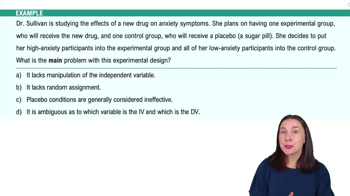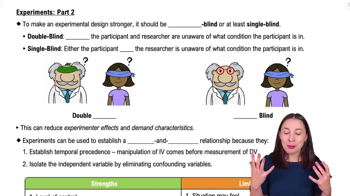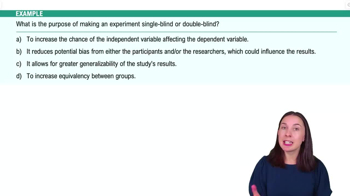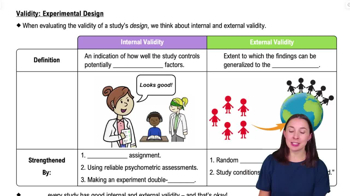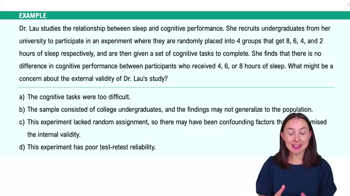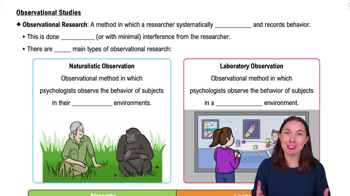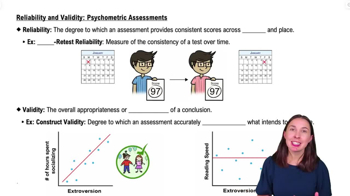Table of contents
- 1. Introduction to Psychology1h 43m
- 2. Psychology Research2h 20m
- 3. Biological Psychology2h 41m
- 4. Sensation and Perception28m
- 5. Consciousness and Sleep32m
- 6. Learning41m
- 7. Memory34m
- 8. Cognition37m
- 9. Emotion and Motivation35m
- 10. Developmental Psychology33m
- 11. Personality48m
- 12. Social Psychology41m
- 13. Stress and Health41m
- 14. Psychological Disorders44m
- 15. Treatment47m
2. Psychology Research
Intro to Research Methods
Struggling with Psychology?
Join thousands of students who trust us to help them ace their exams!Watch the first videoMultiple Choice
Which of the following statements best describes a case study?
A
A psychological research method that involves manipulating one variable to discover its effect on another.
B
A statistical technique that examines the direction and strength of a relationship between two variables.
C
A research method that involves utilizing archived data.
D
A research method that involves an in-depth examination of a single individual or small group of people.
 Verified step by step guidance
Verified step by step guidance1
Understand that a case study is a qualitative research method used in psychology.
Recognize that a case study involves an in-depth examination of a single individual or a small group, providing detailed insights.
Differentiate a case study from other research methods like experiments, which manipulate variables, or correlational studies, which examine relationships between variables.
Identify that case studies often use various data collection methods such as interviews, observations, and analysis of personal documents.
Acknowledge that case studies are valuable for exploring rare or unique phenomena, offering rich qualitative data that can inform broader psychological theories.

 1:46m
1:46mWatch next
Master Roadmap of the Lesson with a bite sized video explanation from Hannah Gordils
Start learningRelated Videos
Related Practice










